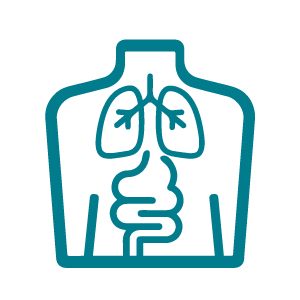

Programme Scope
This workstream provides support across all NCD diseases including with policy development, strategy development, training, programme and intervention development and developing and passing legislation. The programme supports (or directly commissions) research, evaluations, data and health informatics reports (such as Joint Strategic Needs Assessments).
Workstream Focus
- Improve the evidence base on NCD health needs to inform policy planning, implementation, delivery and evaluation.
- Provide support to strengthen prevention and management of NCDs.
- Build capacity and support professional development for people working in health promotion in the UKOTs to ensure good practice and workforce planning.
Example Projects
- Facilitating academic and technical support to the health promotion team in St Helena to implement the early stages of a whole systems approach to obesity.
- Commissioned the University of West Indies to support two UKOTs to develop a Non-Communicable Disease (NCD) patient register.
- Conducted a situation analysis of school food in BVI and provided recommendations for policy to improve food eaten during the school day.
Networks
UKOTs Health Promotion Network
This network is for Health Promotion Leads across the UKOTs to share experiences, guidance and best practice through presentations and informal discussions. Previous themes have included NCD risk factors where a call was dedicated to each of the main modifiable NCD risk factors: tobacco use, physical inactivity, the harmful use of alcohol, unhealthy diets and air pollution.
The Network meets every 3 months, using the MS Teams platform with secretariat and chairing by UKHSA. For more information or to join the Network please email UKOTs.Programme@ukhsa.gov.uk
UKOTs Child Public Health Network
This network aims to facilitate the sharing of knowledge and expertise across the UKOTs. The network facilitates discussions and action plans for new areas of work. Utilising experience from clinical practice, members use evidence to reflect on resources and influential policies. Previous meetings have been focused on setting up a “buddy system”. This initiative aims to buddy up an individual in a UKOT and someone in the UK with a common professional area of practice to create a mutual learning partnership and expanded support network. This is an opportunity for exchange of knowledge and expertise between professionals to support learning, practice development and innovation.
The Network meets every 3 months, using the MS Teams platform with secretariat and chairing by UKHSA. For more information or to join the Network please email UKOTs.Programme@ukhsa.gov.uk
Key Resources
- Case et al 2022: The ‘sugar tax’ in Bermuda: a mixed methods study of general population and key stakeholder perceptions | SpringerLink
- Segal et al 2022: The benefits and challenges of taxing sugar in a small island state: an interrupted time series analysis | International Journal of Behavioural Nutrition and Physical Activity | Full Text (biomedcentral.com)
- Whole systems approach to obesity: Guidance Whole systems approach to obesity - GOV.UK (www.gov.uk)
- Williams et al 2022: 'Choice should be made through… educated decisions not regressive dictates’: discursive framings of a proposed ‘sugar tax’ in Bermuda: analysis of submissions to a government consultation